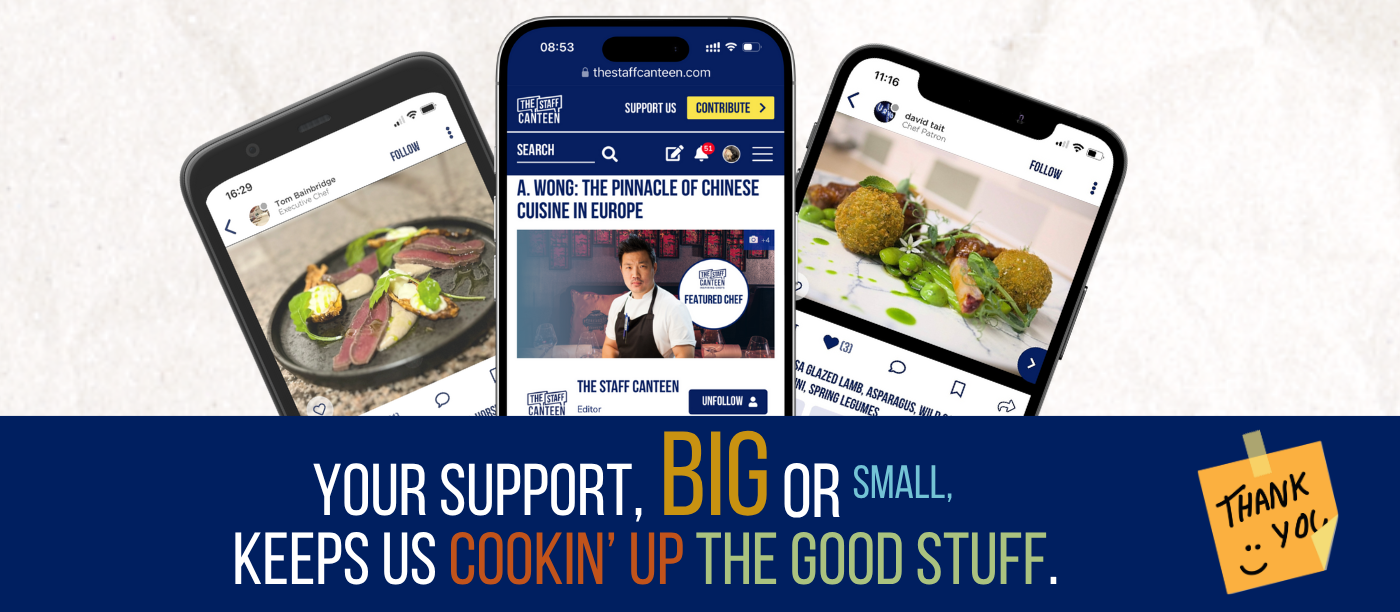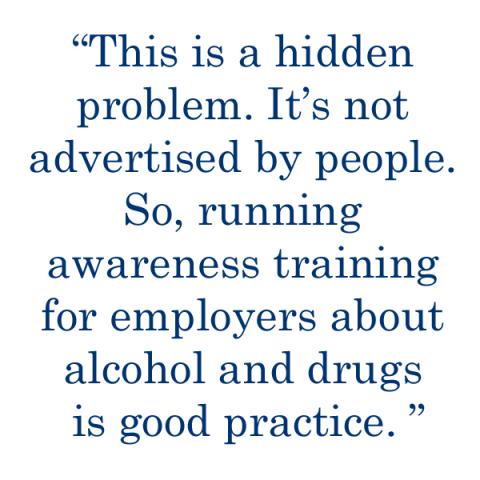We shared a story a few months back about a chef being caught with drugs, which generated a huge social media conversation around that topic. So, we asked our members and followers for their thoughts and opinions on addiction within the industry.
Following on from your responses, The Staff Canteen spoke to people who have worked in the hospitality business and who are familiar with the chef lifestyle. They shared their personal stories with us and contributed their own advice, in the hope that it will help those who may be in need of some support within the industry.
Hiding addiction - why is this a problem?
“Chefs are fairly polished in the kitchen, but outside of that they don’t often want to talk about what is going on in their personal lives,” a chef who wishes to remain anonymous tells us. “For me, the main problem is when chefs start hiding their addiction, so you don’t find out until it gets too much for them.”
Working in the industry from the young age of thirteen, he believes that the drinking culture was ingrained in him because of the chef lifestyle. He was surrounded by drink and it soon became a necessity.
“For me, it got past the point where people were drinking with me. That’s when it becomes dangerous. When you start doing it on your own and no one knows that you’re doing it, then you are addicted,” he explains.
Some of the comments on Facebook and Instagram also provided a key perspective from people who have experience within the industry.
Many agreed that improving the working conditions within the industry would be a good step forward.
Incredibly long shifts can lead to an extreme lifestyle
James Whetlor, owner of Cabrito Goat Meat and former chef, agrees that incredibly long shifts can lead to an extreme lifestyle and believes that the industry can be an easy place to hide an addiction.
He says: “You’re always around alcohol and if you are a young chef, there are always lots of young people in hospitality who are interested in food and wine and going out. On top of this, the environment is chaotic and there are a lot of people that come and go. That really suits addicts as well, as they don’t want meaningful relationships, because they don’t want anyone to get to know them.
“However, I don’t think the restaurant industry should beat itself up. Although it has a responsibility of care for people that work in their environment, you can’t legislate for everything,” explains James.
“There is a certain attraction because of the access to alcohol and form of lifestyle but, I don’t think you’ll find there are more addicts in this way of life than any other.”
Here is what our final Twitter poll revealed about our followers’ thoughts on the subject…
Are drugs an individual life style choice or do the pressures of being in the hospitality industry contribute?
Although the majority believe that taking drugs is an individual life style choice, there is still plenty of support available for those within the industry who are battling with any form of addiction.
Since 2002, Hospitality Action has been running seminars on alcohol and drug awareness, teaching both students and employers about the industry and the risks that are














